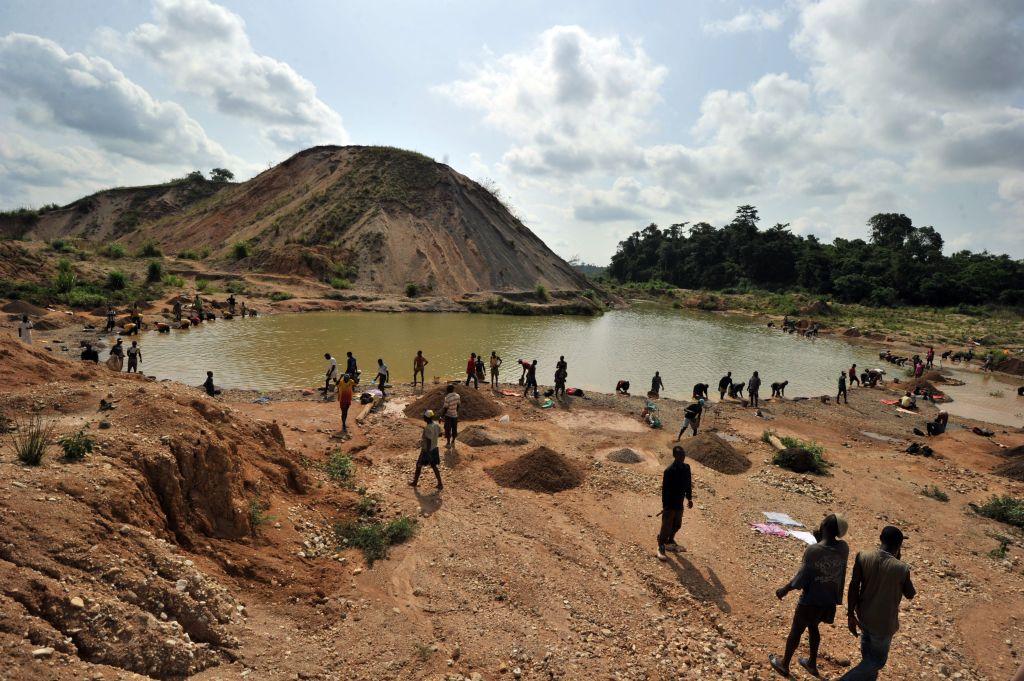Sierra Leone has long been a focus of Beijing for aggressive investment due to the West African country’s rich mineral resources, which include diamonds, gold, iron ore, and bauxite.
Recently, the actual benefits of Chinese investment have been a subject of debate in the Sierra Leone government, which led to the termination of an international airport project that was to be financed by China.
Kabineh Kallon, Sierra Leone’s transport and aviation minister, said in a letter dated Oct. 5 addressed to the director of the project that the government would end the contract to build the Mamamah International Airport as of the end of this month, according to Sierra Leone newspaper the Sierra Leone Telegraph. Mamamah is a small town on the outskirts of the country’s capital Freetown.
Soon after the deal was signed by Sierra Leone’s president in March, China’s state-run China Railway International Group began work on the airport, with financing from China’s state-owned Export-Import Bank of China, according to Sierra Leone newspaper the Concord Times.
The letter said, “It is the government’s view that it is uneconomical to proceed with the construction of a new airport when the existing one is grossly underutilized.”
The existing Lungi International Airport is the only international airport in Sierra Leone. According to the Sierra Leone Telegraph, critics of the Mamamah airport project, including the World Bank, say that Lungi International Airport has been struggling to reach full capacity, due to the low number of international travelers.
According to the Sierra Leone Telegraph, Lungi International Airport has recently been redeveloped with over $200 million in funding from the World Bank.
Former Sierra Leone President Ernest Bai Koroma signed the Mamamah project after four years of negotiations. According to the Sierra Leone Telegraph, Mamamah was Koroma’s political heartland. But soon after the airport deal was brokered, Koroma’s political party, All People’s Congress (APC), and its presidential nominee, Samura Kamara, lost to its rival party, the Sierra Leone People’s Party and its nominee, Julius Maada Bio, during the general election that same month. Bio is the current president.
The Sierra Leone Telegraph article called the Mamamah project a “vanity project,” pointing out that the construction of a second international airport made little economic sense because Sierra Leone “is struggling to find money to pay for the delivery of health care, education, access of water, and electricity.”
Debt Trap
Sierra Leone has accumulated more than $220 million of debt to China in the past 10 years, according to data from the Johns Hopkins China-Africa Research Initiative.
Many countries, including South Africa, Kenya, Sri Lanka, and the Maldives are currently saddled with enormous debt to China. Locals have accused Beijing of putting their countries into “debt traps,” after servicing loans for expensive infrastructure projects.
The Johns Hopkins China-Africa Research Initiative estimates that African nations, as a whole, owe China about $130 billion.
However, scrapping the Mamamah project doesn’t mean Bio will stop taking out more loans—including more from China.
According to Sierra Leone’s official government website, on August 31, Bio spoke to Song Dongsheng, president of China’s state-owned PowerChina International Group, on Aug. 31, about whether the company could finance the construction of a bridge connecting Lungi International Airport and Freetown. Various Sierra Leone media estimate the bridge’s cost at about $1.3 billion.
A Sept. 12 article by Sierra Leone newspaper Awareness Times questioned the economic feasibility of the bridge project, given that the country’s GDP in 2017 was only $3.77 billion, while Africa Confidential, a publication based in London, said in an editorial published on Sept. 14 that the bridge project is “sure to set the government on a collision course with donors and international financial institutions.”





